Microbes
-
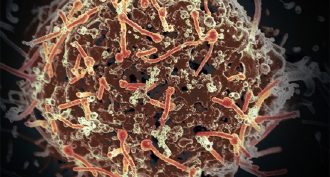 Microbes
MicrobesNews Brief: Ebola’s dead stay infectious for a week
The Ebola virus doesn’t die with its victims — at least not right away. A corpse may host live virus for up to a week after death, a new study finds.
By Janet Raloff -
 Microbes
MicrobesMaking a microbe subway map
We are surrounded by bacteria, fungi and other tiny organisms. Now, high school scientists have contributed to the first map of microbes in the New York subway system.
-
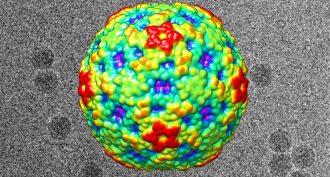 Microbes
MicrobesNew virus may have given kids polio-like symptoms
More than 100 U.S. children developed a paralyzing illness in 2014. Genetic evidence now suggests that the most likely culprit is a new form of a virus in the polio family.
-
 Chemistry
ChemistryCooking up life for the first time
The basic components for life could have emerged together nearly 4 billion years ago on the surface of Earth, chemists report.
By Beth Mole -
 Microbes
MicrobesLife’s ultra-slow lane is deep beneath the sea
Biologists had suspected the deep seafloor would be little more than barren sediment. But they found a surprising amount of oxygen — and life.
By Beth Geiger -
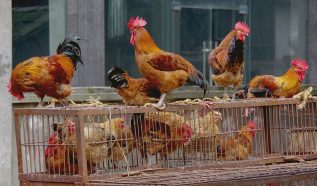 Health & Medicine
Health & MedicineChickens spread latest deadly bird flu
A new bird flu virus threatens to spread outside of China. Experts traced the germ to markets where live chickens are sold.
-
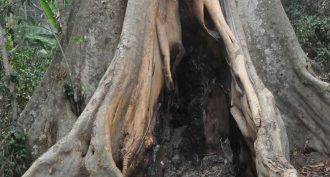 Microbes
MicrobesOngoing Ebola outbreak traced to hollow tree
Scientists suspect the current Ebola outbreak started with bats that lived in a hollow tree in Guinea. The outbreak's first victim, a two-year-old boy, often played in the tree.
-
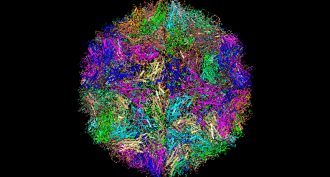 Microbes
MicrobesCold noses nurture colds
The common cold infects the nose. Scientists long have known the virus grows better there, but not why. Now, a study finds the body’s defenses simply don’t work as well under the nose’s slightly cooler temperatures.
-
 Microbes
MicrobesClouds may be dining cars for some germs
Scientists had known microbes could hitchhike across and between continents on clouds. New research now shows that some germs don’t just treat clouds as a high flying jet, but also as a cafeteria.
By Beth Mole -
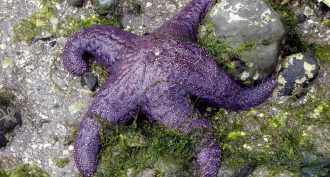 Microbes
MicrobesVirus blamed in starfish die-off
A virus may explains the deaths of millions of starfish along the Pacific Coast of North America. The deaths affect 20 species. Some of the stricken animals appear to melt into puddles of slime.
-
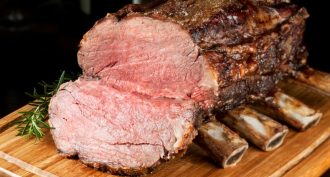 Microbes
MicrobesHow ‘bugs’ in our bellies impact our health
Gut bacteria can play a powerful role in human health, new studies show. In one, bacteria turned a nutrient in red meat into a chemical that boosts the risk of a heart attack. Another study shows that our genes play a role in whether we are fat or thin, probably by affecting which bacteria prefer to live in our intestines.
-
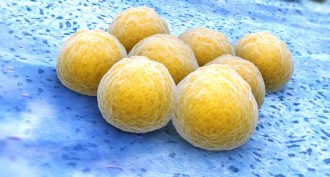 Microbes
MicrobesGerms help each other fend off antibiotics
Drug-resistant bacteria can cause persistent infections. A new study finds these germs fight drugs in different ways. And they can swap various compounds, increasing their neighbors’ chances of overcoming the drugs meant to kill them.